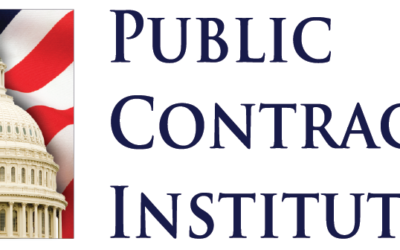The Armed Services Board of Contract Appeals (the “Board”) reminded the government that if it failed to raise jurisdictional issues (namely a sum certain requirement that should have been in the claim) before a hearing on the merits, it forfeited its right to challenge the contractor’s satisfaction of the sum certain requirement. J.E. Dunn Const. Co., ASBCA No. 63183, Dec. 24, 2023.
Dunn had a contract for HVAC Replacement at a clinic at Fort Drum, NY, and sought damages totaling $949,000 for a compensable time extension arising from government-directed changes. Dunn also challenged the government’s direction to upsize boilers to meet a safety issue. Finally Dunn alleged a government violation of the Prompt Payment Act.
The government requested that the Board dismiss the Prompt Payment Act violation for lack of jurisdiction for failure to state a claim, stating it was never included in the original claim. No mention was made in the motion of the sum certain issue in the government’s motion.
The Board heard the merits of the appeal at a four day hearing between Feb. 28-March 3, 2023. During the hearing, the Board raised the issue of Board jurisdiction, asking the parties if the three components of the appeal (hydronic piping, humidifiers and boilers) were the subjects of separate sums certain in the claim. The government deferred any comment, as did Dunn, and both reserved comment for the post-hearing brief. The government’s post-hearing brief moved for dismissal on the ground that Dunn had presented three distinct claims while only stating one dollar amount.
The Board noted that in requesting dismissal (for lack of jurisdiction or a motion for failure to state a claim) only after the hearing on the merits, the government forfeited its right to challenge the sum certain requirements. The Court of Appeals for the Federal circuit previously held that stating a sum certain in a claim was mandatory but non-jurisdictional requirement subject to forfeiture by the government. ECCI v. Sec’y of Army, 79 F. 4th 1364 (Fed Cir. 2023).
During the hearing on the merits, the Board asked, for jurisdictional purposes, whether the sum certain requirement had been satisfied. The government had the opportunity at that time, either on its own or in response to the Board’s questions, to take the position before or during the hearing on the merits that Dunn had not satisfied the sum certain requirements. The government failed to do so. Having waiting until after the hearing on the merits to request dismissal or lack of jurisdiction, the Board ruled that the government had forfeited its right to challenge Dunn’s satisfaction of the sum certain requirement.
Takeway – Jurisdictional Issues
Government counsel must raise proper jurisdictional issues before a hearing on the merits, or at least during the hearing, and not wait until post-hearing briefs to raise this issue.
For other helpful suggestions on government contracting, visit:
Richard D. Lieberman’s FAR Consulting & Training at https://www.richarddlieberman.com/, and Mistakes in Government Contracting at https://richarddlieberman.wixsite.com/mistakes.
What is the Public Contracting Institute?
The Public Contracting Institute is an instructor-owned government contracts training company. PCI offers regular live virtual trainings on government contracts topics, an innovative eLearning program, and offer customized training to government contractors and agencies.
Learn more about government contracting, the ASBCA, and claims, by reading these articles:
- No Clarifications Required
- NOT A FINAL CONTRACTING OFFICER’S DECISION
- Armed Services Board Report For Fiscal 2023 Shows Increases In Merits Found In More Than 50% Of The Cases Reported
- FREEDOM OF INFORMATION ACT REQUEST DOES NOT TOLL THE STATUTE OF LIMITATIONS ON A CLAIM
- GAO Won’t Consider Non-Competes Because They Are Considered To Be Private Disputes


